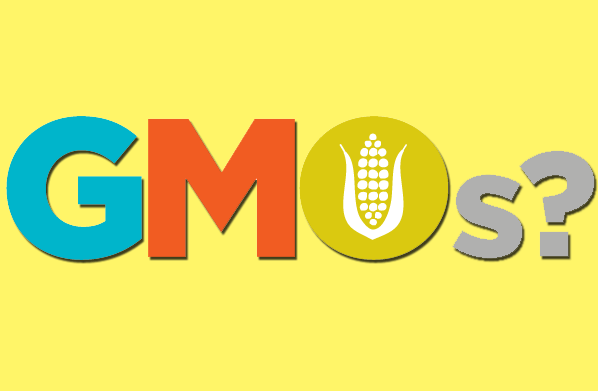People love to freak out about GMOs. Of course, few people actually know what the acronym actually stands for but I can help with that.
GMO stands for Genetically Modified Organism and today, GMOs are present in roughly 70 percent of processed food. So, if you’ve ever eaten a tortilla chip or fried something in canola oil or if you’ve eaten a fresh Hawaiian papaya, you’ve probably consumed a GMO.
Now, calm down. You’re fine. You’re not going to sprout a tail or grow gills or die an early death. We know this because GMOs have been in use for over twenty years and in that time there hasn’t been one case of illness, death or bizarre behavior associated with consuming GMOs. Even the World Health Organization, the American Medical Association, the National Academy of Sciences, and the American Association for the Advancement of Science have all declared that GMOs are safe for human and animal consumption. Thousands of studies confirm this.
Of course, the overwhelming and quite reassuring scientific evidence didn’t stop the state of Vermont from bowing to anti-GMO activist pressure and passing a law that requires all food sold in the state to be labeled if it contains GMOs. Compliance with the new law will be so difficult, that Congress is now taking action against the Vermont law, to protect the interests of consumers in other states. Sadly, on Wednesday, Senator Pat Roberts’ bill, which would have created a U.S. Department of Agriculture voluntary labeling standard for genetically modified products, failed on a cloture vote.
And that’s bad news for all Americans because Vermont’s stupid GMO law will cost Coloradoans, and Californians and folks living in the panhandle of Florida. The reason? Because all food companies will need to start making special labels for the special scardy-cats in Vermont. Yup. Food sent to Vermont for sale would, due to this stoooopid law, get its own special label for the special snowflakes that live there. And shocker! This costs money. Lots and lots of money as companies will need to segregate food intended for Vermont and make special accommodations for this one tiny, annoying state whose biggest contribution to the nation is maple syrup and two oddball liberals who produce mediocre ice cream.
I say we go ahead and donate Vermont to Canada. We can call it a gift…public diplomacy.
Now, I know anti-GMO activists like to act like slapping a label on a food box is, you know, “no big thang!” but it is a very, very big thing as food companies and farmers will be forced to create an entirely new supply chain infrastructure in order to comply with the law. And, more critically, activists pushing for these labeling mandates won’t stop at Vermont Activists are trying to get GMO labeling bills passed in all 50 states and the individual labeling proposals aren’t uniform. One state wants one kind of label, another state wants another kind of label. This state over here wants this information but that state over there doesn’t really care about that information. So, what you’ll eventually have are fifty different labeling standards, meaning food companies will be forced to comply with fifty different labeling laws.
Now what’s that again about it being “no big thang”?
If you think you won’t be affected by these disparate labeling laws, you’re wrong. Studies differ but everyone agrees prices will go up between $500 and $1,200 per year. Do you have that sort of cash lying around? Well some do. You know, like the rich, white, blond actresses who boo hoo to their cooks and nannies about the need to rid their mansions of GMO food. Sure, these privileged few have the money for that. But I certainly don’t. To budget for this, we’ll sacrifice a vacation or a summer camp for the kids or I just won’t purchase those new raincoats and boots the kids need. These food labeling laws are significant for the average American consumer.
So before you get behind these sorts of campaigns with catchy phrases like “right to know” remember, GMOs are a process, not an ingredient. There’s zero nutritional difference between a GMO ear of corn and a non-GMO ear of corn. What “right to know” really means is “pay more for no more information.”
It’s also critical to remember that the FDA already provides a non-GMO label because the agency already requires food labeled “organic” to be free of genetically modified ingredients. As such, if consumers are looking to avoid GMOs, they can simply buy organic items in the grocery store.
See, a solution already exists. Let’s try that one before we pile on more laws.


